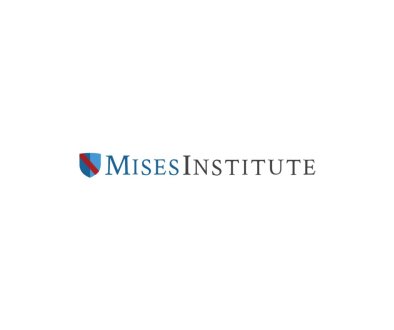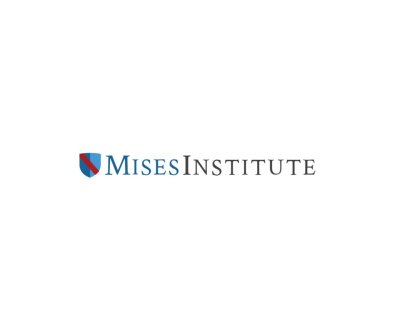Can Harvard Lose Tax Exemption for “Pushing Political, Ideological, and Terrorist Inspired/Supporting ‘Sickness'”?
President Trump suggested on April 15 that:
Perhaps Harvard should lose its Tax Exempt Status and be Taxed as a Political Entity if it keeps pushing political, ideological, and terrorist inspired/supporting “Sickness?” Remember, Tax Exempt Status is totally contingent on acting in the PUBLIC INTEREST!
The IRS is apparently planning something along those lines, though the details are unclear. But, if Harvard was indeed stripped of its tax exemption because of the “political, ideological, and terrorist inspired” views that it “push[es],” would that be consistent with the First Amendment? (I set aside here the separate question whether there may be federal statutory or administrative law constraints applicable here.)
The answer is “no,” as I argued to a Democrat-controlled House subcommittee in 2019, and before that in 2016 (and as Dale Carpenter elaborated on in 2019). Like other such programs that protect a wide range of private speech in order to serve the “public interest,” the government can’t define the scope of the program or the term “public interest” in a way that turns on the viewpoint that the speaker expresses. My testimony focused on calls for stripping tax exemptions from groups that allegedly engaged in “hate speech,” but the same analysis applies to other viewpoint-based denials as well.
(Note that, as I explain below, the government may provide that tax exemptions are unavailable to groups that engage in certain kinds of nonspeech conduct. Likewise, the government provides that tax exemptions are unavailable to groups that engage in electioneering or substantial lobbying, regardless of viewpoint. But here President Trump’s stated rationale is all about the viewpoints that Harvard expresses, perpetuates, or protects.)
* * *
Dear Chairman Lewis, Ranking Member Kelly, and Members of the Committee:
Many thanks for inviting me to testify about “How the Tax Code Subsidizes Hate.” The Tax Code indeed subsidizes hate, just as it subsidizes Socialism, Satanism, and a wide variety of dangerous and offensive ideas. Under the First Amendment, tax exemptions have to be distributed without discrimination based on viewpoint; that means that evil views have to be treated the same way as good views.
1. The Supreme Court has repeatedly made clear that tax exemptions can’t be denied based on the viewpoint that a group communicates. This was first made clear in Justice Brennan’s opinion in Speiser v. Randall (1958), which struck down a denial of a property tax exemption to people and organizations that “advocate[] the overthrow of the Government of the United States … by … violence … or who advocate[] the support of a foreign government against the United States in the event of hostilities”:
[A] discriminatory denial of a tax exemption for engaging in speech is a limitation on free speech. It is settled that speech can be effectively limited by the exercise of the taxing power. To deny an exemption to claimants who engage in certain forms of speech is in effect to penalize them for such speech. Its deterrent effect is the same as if the State were to fine them for this speech…. [T]he denial of a tax exemption for engaging in certain speech necessarily will have the effect of coercing the claimants to refrain from the proscribed speech. The denial is “frankly aimed at the suppression of dangerous ideas.”[1]
The Supreme Court reaffirmed this in 1983, and again in 1995.[2] Though “the Government is not required to subsidize” speakers, once it chooses to provide such a subsidy—including through “tax deductions for contributions”—it must abide by “the requirement of viewpoint neutrality in the Government’s provision of financial benefits.”[3] And the U.S. Court of Appeals for the D.C. Circuit has specifically applied this to denials of a 501(c)(3) tax exemption, holding that “in administering the tax code, the IRS may not discriminate on the basis of viewpoint” (there, against pro-Israel speech that departed from the Administration’s foreign policy).[4]
2. The Court has also made equally clear that excluding speech that manifests or promotes “hate” is forbidden viewpoint discrimination. The Court said so unanimously in Matal v. Tam, which struck down a rule that excluded “disparag[ing]” trademarks from certain kinds of trademark enforcement benefits.[5] In Matal, the Patent and Trademark Office refused to register the trademark “The Slants,” because it perceived the mark as a derogatory term for Asians. This refusal was just the denial of a benefit; no-one was being threatened with jail or fines for using the name—owners of this mark were just not being given access to certain useful remedies against those who would infringe the mark. But the Court still concluded that such exclusion of disparaging marks was forbidden viewpoint discrimination.[6]
3. The law may treat groups differently based on their actions, but not based on the views they express. Thus, for instance, in Bob Jones University v. United States, the Supreme Court upheld the denial of a tax exemption to a university that banned interracial dating by its students, and that threatened to expel students who violated the ban.[7] Likewise, in Christian Legal Society v. Martinez, the Supreme Court held that public universities could deny generally available benefits to student groups based on those groups’ exclusionary membership policies.[8] But the government may not deny tax exemptions or similar benefits to universities, churches, student groups, or other groups simply because they advocate against interracial dating, or against interfaith dating, or against same-sex dating. As the Court made clear in Christian Legal Society,
Although registered student groups must conform their conduct to the Law School’s regulation by dropping access barriers, they may express any viewpoint they wish—including a discriminatory one. Today’s decision thus continues this Court’s tradition of “protect[ing] the freedom to express ‘the thought that we hate.'”[9]
4. Groups may be denied tax exemptions for deliberately engaging in speech that falls within one of the few narrow exceptions to the First Amendment, such as true threats of criminal attack, or incitement intended to and likely to cause imminent criminal conduct. But “hate speech” writ large doesn’t fall within any such exceptions, as cases such as Matal and Christian Legal Society make clear.
And any such rule denying tax exemptions for constitutionally unprotected speech must its
Article from Reason.com

The Reason Magazine website is a go-to destination for libertarians seeking cogent analysis, investigative reporting, and thought-provoking commentary. Championing the principles of individual freedom, limited government, and free markets, the site offers a diverse range of articles, videos, and podcasts that challenge conventional wisdom and advocate for libertarian solutions. Whether you’re interested in politics, culture, or technology, Reason provides a unique lens that prioritizes liberty and rational discourse. It’s an essential resource for those who value critical thinking and nuanced debate in the pursuit of a freer society.


